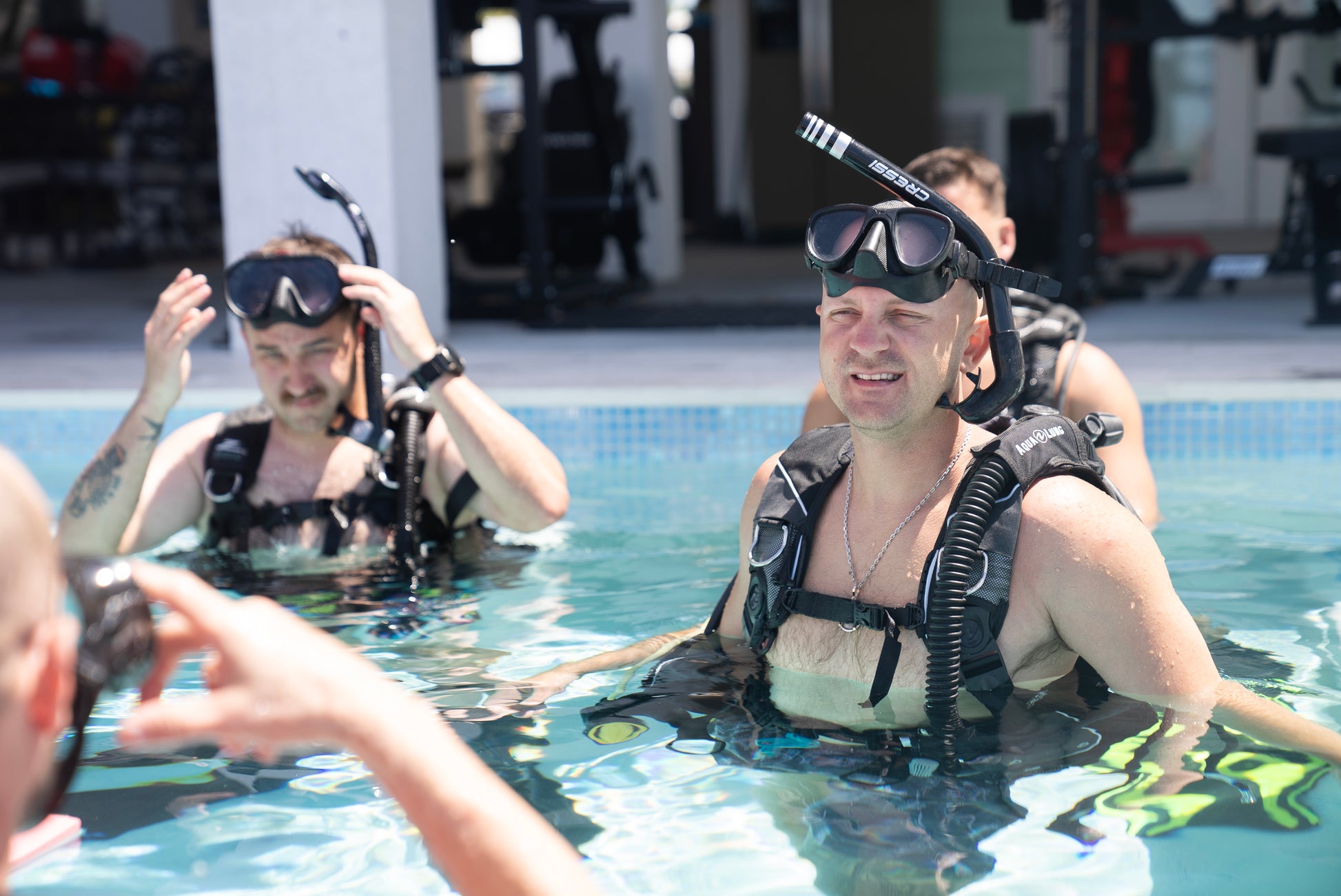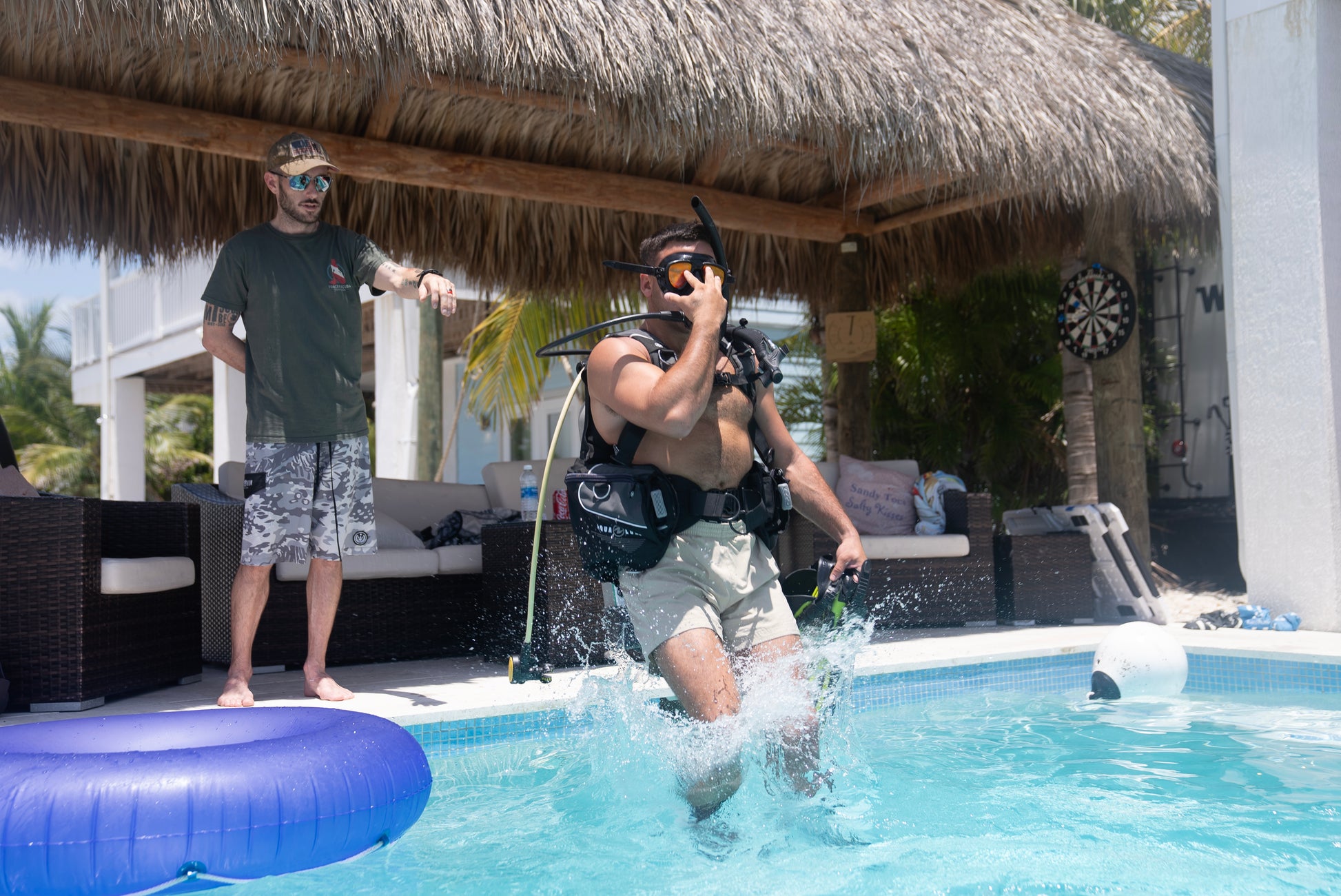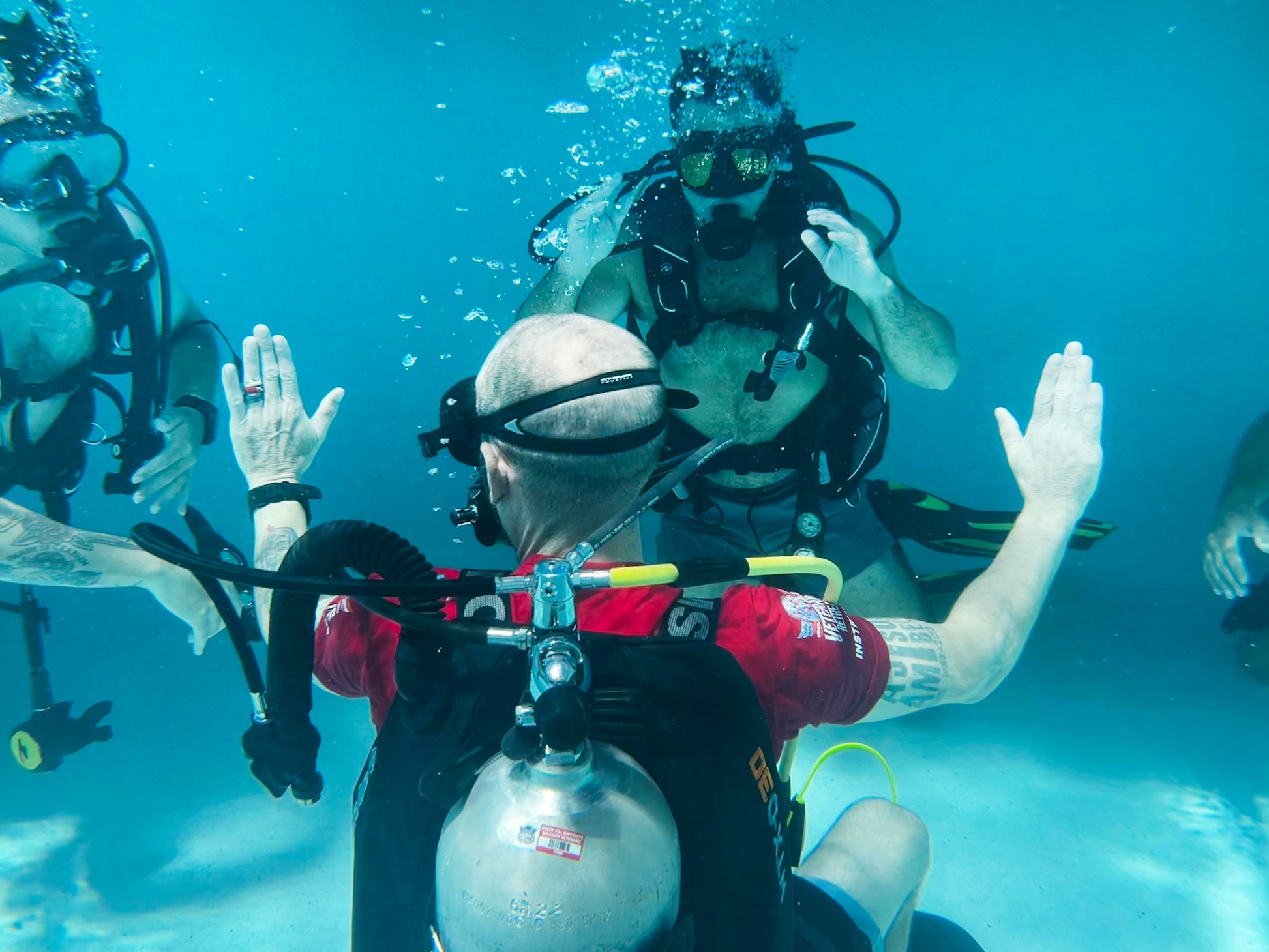PADI Open Water Certification
PADI Open Water Certification
Becoming a scuba diver is a wonderful adventure! Scuba certification includes three phases:
1. Knowledge Development
During the first phase of your scuba lessons, you'll learn the basic principles of scuba diving such as
- What to consider when planning dives.
- How to choose the right scuba gear for you.
- Underwater signals and other diving procedures.
You'll learn this valuable information by reading it in the PADI Open Water Diver Manual or by using the PADI Open Water Diver eLearning. At the end of each chapter, you'll answer questions about the material to ensure you understand it. Along the way, let your PADI Instructor know if there is anything you don't understand. At the end of the course, you’ll take a final exam that ensures you have thorough knowledge of scuba diving basics.
You'll also watch videos that preview the scuba skills you'll practice in a swimming pool or pool-like environment. In addition to the video, your instructor will demonstrate each skill for you.
2. Confined Water Dives
This is what it’s all about – diving. You'll develop basic scuba skills in a pool or in confined water – a body of water with pool-like conditions, such as off a calm beach. The basic scuba skills you learn during your certification course will help you become familiar with your scuba gear and become an underwater explorer. Some of the essential skills you learn include:
- Setting up your scuba gear.
- How to get water out of your mask.
- Entering and exiting the water.
- Buoyancy control.
- Basic underwater navigation.
- Safety procedures.
You'll practice these skills with an instructor until you're comfortable. When you're ready, it's time for your underwater adventure to begin at an open water dive site.
3. Open Water Dives
After your confined water dives, you'll head to open water, where you and your instructor will make four dives, usually over two days. On these dives you'll get to explore the underwater world. You'll apply the skills you learned in confined water while enjoying what the local environment has to offer. Most student divers complete these dives close to home, but there is an option for finishing your training while on holiday. Your PADI Instructor can explain how you can be referred to another PADI Instructor in a different location.
How long does it take to get certified?
The PADI Open Water Diver course is flexible and performance based, which means that your PADI dive shop can offer a wide variety of schedules, organized according to how fast you progress. It’s possible to complete your confined and open water dives in three or four days by completing the knowledge development portion via PADI eLearning, or other home study options offered by your local dive shop or resort.
Your PADI Instructor will focus on helping you become a confident and comfortable diver, not on how long it takes. You earn your certification based on demonstrating you know what you need to know and can do what you need to do. This means that you progress at your own pace – faster or slower depending upon the time you need – to become a competent scuba diver.
What gear will I need to scuba dive?
Choosing and using your scuba gear is part of the fun of diving. Don't worry, we will help you find the right gear. Each piece of scuba equipment has a different function so that together, it adapts you to the underwater world.
When you start learning to scuba dive, as a minimum, you'll want your own:
- Mask
- Snorkel
- Fins
These have a personal fit, and your local PADI dive shop will help you choose gear with the best fit and features for you.
During your PADI Open Water Diver course, you’ll learn to use a regulator, buoyancy control device (BCD), dive computer or dive planner, scuba tank, wetsuit or dry suit and weight system. Check with your local PADI Resort or dive shop to confirm what equipment is included in your course package. Consider investing in all your own scuba equipment when you start your course because:
- You’re more comfortable learning to scuba dive using gear you’ve chosen.
- You’re more comfortable using scuba gear fitted for you.
- Scuba divers who own their scuba diving equipment find it more convenient to go diving.
- Having your own scuba diving gear is part of the fun of diving.
Couldn't load pickup availability
DONATION INCLUDED
DONATION INCLUDED
When you purchase this product, a donation will be made to the Veterans Retreat in your name.







